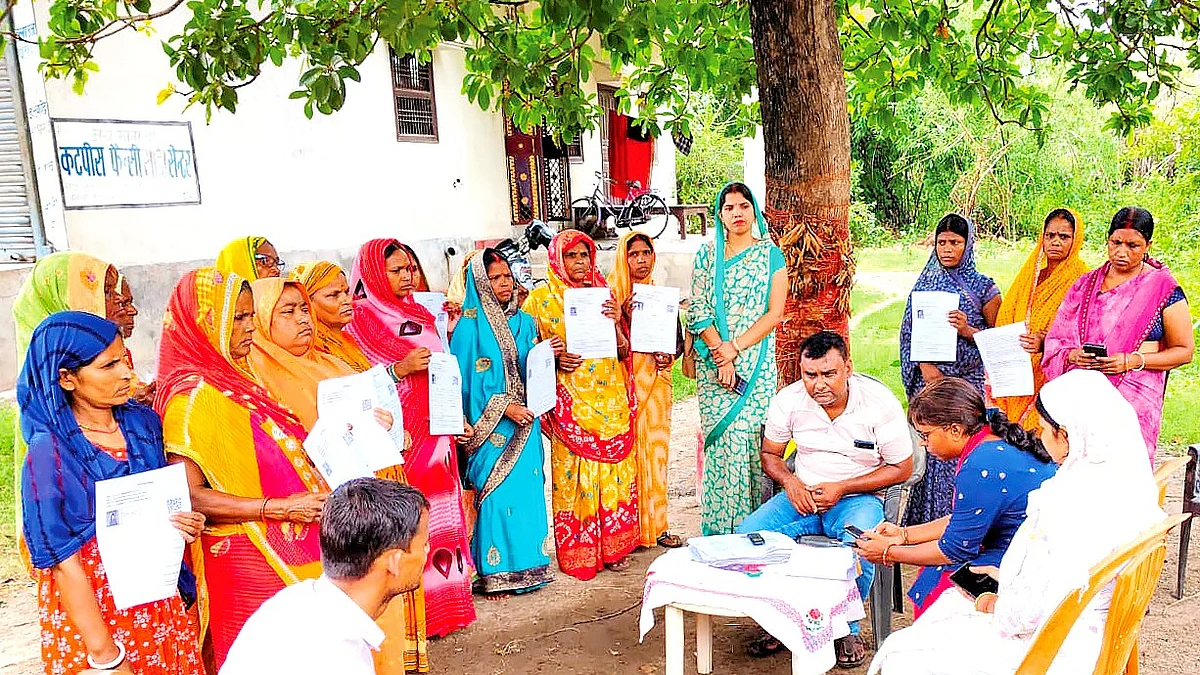Casting voters aside, the ECI way
With 74 lakh voters gone ‘missing’ in Bihar, as per the ECI, the special intensive revision has triggered dissent even from BJP allies

Bihar waits with bated breath for the Election Commission of India (ECI) to release the revised draft electoral rolls on 1 August. So do political observers and psephologists. The ‘Special Intensive Revision’ (SIR) exercise has reached a political flashpoint, now drawing fire even from the BJP’s allies.
Janata Dal (United) MP from Banka Giridhari Yadav, who was served a show cause notice for breaching party discipline, put it bluntly: “The Election Commission does not know Bihar.”
The exercise, he said, was “forcefully imposed” during the monsoon season, when people are busy with agricultural activities. “It took me 10 days to get my own documents in order. My son is in the US. The ECI should have given at least six months.”
Several other JD(U) leaders, speaking off the record, echoed similar concerns over the SIR’s timing, methodology and potential consequences. They too flagged the difficulty of collecting documents in this season and warned that genuine voters — especially migrant workers — faced the risk of being excluded from the final list.
Political observers say the JD(U), which has high stakes in Bihar, is beginning to feel the heat, prompting individual leaders to break ranks and voice their discontent.
On 21 July, the ECI claimed that its officials could not locate 43.9 lakh voters at their listed addresses — a number that had mysteriously jumped by seven lakh in three days. On 22 July, it declared that 52.3 lakh voters had been dropped from the rolls — citing death, migration or multiple enrolments — while 21.4 lakh voters were yet to complete the necessary documentation.
Also Read: The casino is rigged; long live the casino!
While urging political parties to help locate a staggering 74 lakh voters, the ECI also claimed that meetings had been held with representatives of “all political parties” and the list of these 74 lakh voters shared with them.
Leaders of the opposition Rashtriya Janata Dal (RJD) and Congress told National Herald that no such lists were provided to them. The ECI, they alleged, was “misleading the public”. One of them told this reporter, on condition of anonymity, that even if the lists were shared (on 23 July), it would be impossible to verify the information before 25 July, the concluding day of the exercise.
Even the Telugu Desam Party (TDP)—which has no stakes in Bihar, but props up (alongside the JD-U) the BJP-led NDA’s majority in the Lok Sabha—has made cautionary noises about the SIR exercise. Leading a TDP delegation to the ECI on 15 July, party MP Lavu Sri Krishna Devarayalu said the verification process should not burden voters needlessly, and the ECI’s purpose in conducting the exercise should be clearly defined and delinked from citizenship verification.
The TDP has also written to the ECI urging it to clearly define the scope of the SIR. The letter emphasises that it should strictly be a technical correction—not linked to citizenship verification—and that this distinction must be communicated unambiguously to prevent confusion or misuse.
Hearing a batch of petitions on the SIR on 10 July, a Supreme Court bench of Justice Sudhanshu Dhulia and Joymalya Bagchi posted the matter for next hearing on 28 July — later rescheduled to 29 July. At the time of writing, it was not clear what the Opposition might do if the pronouncements of the country’s highest court bring no relief.
The assembly election is due in October/ November and the official notification of poll dates is likely to come in September, leaving very little time for excluded voters to seek redress in time for the vote. Once the election is notified, no court is likely to entertain any complaints either.
A senior RJD leader admitted, “We don’t have a clear strategy yet.” A Congress functionary said the alliance has had no discussions yet on this issue. Other party leaders said they would wait for directions from the central leadership in Delhi. “This issue involves constitutional interpretation and legal nuances. An effective strategy can only be formulated after consulting senior advocates and those representing the INDIA bloc parties in the Supreme Court,” one of them added.
Activist and psephologist Yogendra Yadav, who has been closely monitoring the process, expressed deep scepticism about the ECI’s claims. Back in New Delhi after attending a jan sunwai (public hearing) in Patna, where people from across the state narrated their experiences of the SIR, he told National Herald, “Official claims simply do not reflect the situation on the ground…. Nobody knows how the SIR forms were filled; people are still unaware of the process. What’s happening in Bihar is voter fraud, thanks to a ‘Tughlaqi firmaan’ issued in Delhi.
“The real game will begin after 1 August,” he warned, adding that “the real risk is not just [accidental] deletion but systematic disenfranchisement.”
Follow us on: Facebook, Twitter, Google News, Instagram
Join our official telegram channel (@nationalherald) and stay updated with the latest headlines
